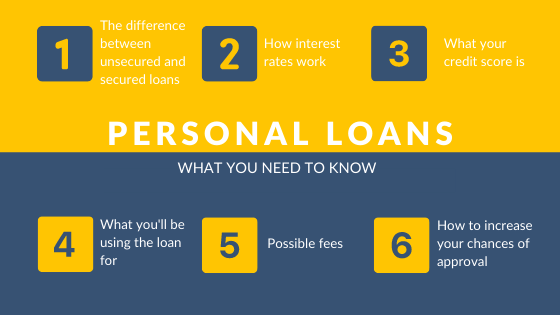Taking out a personal loan is a significant financial decision that requires careful consideration. Whether you need funds for debt consolidation, home improvement, or an emergency expense, it’s crucial to evaluate all aspects of a personal loan before proceeding. Here’s what you need to consider to make an informed choice.
1. Understand Your Financial Situation
Before applying for a personal loan, assess your current financial situation. This involves taking a closer look at your income, expenses, and existing debt.
- Review Your Budget: Determine how much you can afford to borrow and repay each month without compromising your financial stability. Ensure you can handle the additional debt without stretching your budget too thin.
- Check Your Debt-to-Income Ratio: Lenders often use this ratio to assess your ability to repay the loan. A lower debt-to-income ratio improves your chances of approval and getting favorable terms.
2. Know the Loan Purpose
Clearly define the purpose of the loan. Knowing exactly why you need the money will help you choose the right type of personal loan and the amount required.
- Specific Needs: Whether it’s for medical expenses, debt consolidation, or home renovation, a clear purpose helps you avoid borrowing more than necessary.
- Avoid Unnecessary Debt: Only take out a personal loan for essential needs and not for discretionary spending, such as vacations or non-essential luxury items.

3. Compare Lenders and Loan Options
Personal loans come in various forms, and different lenders offer different terms. Take time to compare lenders and loan options to find the best deal.
- Interest Rates: Compare interest rates from multiple lenders. Lower interest rates reduce the total cost of the loan, saving you money over time.
- Loan Terms: Understand the length of the loan and the flexibility of repayment terms. Shorter loan terms usually mean higher monthly payments but less interest paid overall.
- Additional Fees: Look for any additional fees such as origination fees, prepayment penalties, or late payment charges. These can significantly affect the total cost of your loan.
4. Check Your Credit Score
Your credit score is a critical factor in determining your eligibility for a personal loan and the interest rate you’ll receive.
- Review Your Credit Report: Obtain a free copy of your credit report and check for errors or discrepancies. A higher credit score can help you qualify for a lower interest rate.
- Improve Your Score: If your score is not where you want it to be, consider delaying your loan application to improve your credit by paying down existing debts and making timely payments.
5. Understand the Type of Loan: Secured vs. Unsecured
Personal loans can be either secured or unsecured. Each type has its pros and cons.
- Secured Loans: These loans require collateral, such as a car or savings account, which the lender can seize if you default. They often come with lower interest rates.
- Unsecured Loans: These do not require collateral but usually come with higher interest rates. They are riskier for lenders, which is why they may charge more.
6. Calculate the Total Cost of the Loan
Don’t focus solely on the monthly payment amount. Consider the overall cost of the loan, including interest and fees.
- Use Loan Calculators: Online loan calculators can help you estimate the total cost of the loan over the repayment period.
- Factor in Fees: Understand all the costs associated with the loan, including origination fees and potential penalties for early repayment.
7. Read the Fine Print
Before signing any loan agreement, carefully read the terms and conditions. Ensure you understand all aspects of the loan.
- Know the Repayment Terms: Make sure you know the loan’s repayment schedule, interest rate, and the consequences of missing payments.
- Look for Hidden Clauses: Some loans may have hidden clauses that could increase the cost or add unexpected fees. Ensure there are no surprises.
8. Consider Your Repayment Plan
It’s essential to have a solid repayment plan in place before taking out a loan.
- Assess Affordability: Calculate if the monthly payments fit comfortably within your budget.
- Set Up Automatic Payments: To avoid late fees and potential damage to your credit score, consider setting up automatic payments.
9. Evaluate Alternatives to Personal Loans
Before committing to a personal loan, explore other financial options that might be more suitable.
- Consider a Balance Transfer Credit Card: If you’re looking to consolidate debt, a balance transfer credit card with a low or 0% introductory APR might be a better option.
- Look Into Home Equity Loans: If you own a home, a home equity loan might offer lower interest rates than a personal loan, although it comes with the risk of foreclosure if you default.
Conclusion
Before taking out a personal loan, it’s essential to assess your financial situation, understand the loan terms, and explore alternatives. By carefully considering these factors, you can make a more informed decision that aligns with your financial goals and needs.

